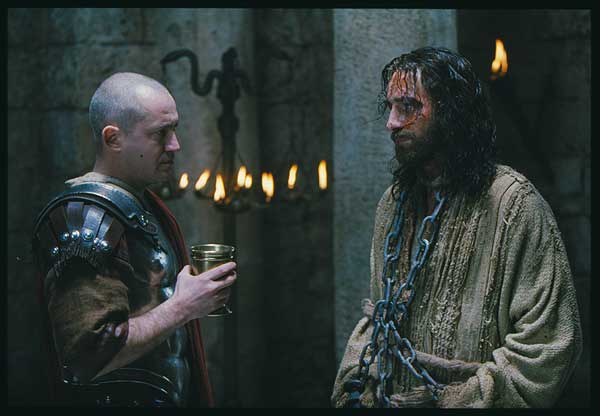"Blessed are the meek, for they will inherit the earth." (Matt.5:5)
"Blessed are the quiet and content, the humble and unassuming,
the gentle and trusting who are not grasping and clutching,
for God will personally guarantee their share when heaven and earth become one."
(Brian Zahnd paraphrase)
"Blessed are the quiet and content, the humble and unassuming,
the gentle and trusting who are not grasping and clutching,
for God will personally guarantee their share when heaven and earth become one."
(Brian Zahnd paraphrase)
These words of Jesus would have shocked and/or amused His listeners. After all, everyone knew how the real world was run. Rome ruled the world and for sure did not gain power by being meek! "Rome ruled the world because they were smart, bold, aggressive, and willing to make war to secure their super-power status. Yet here is this poor Galilean rabbi announcing that the meek will inherit the earth...
"The way of violence and aggression is the way of Caesar. The way of meekness and trust is the way of Christ...In the third beatitude, Jesus is endorsing the radical trust of Psalm 37...The psalm advocates trusting the living God for security instead of relying upon the conventional means of force employed by the wicked...
"The earth is seized by the aggressive and violent, but it is inherited by the meek and gentle. Inheritance is a family word, a relationship word, a grace word. Seizing is the way of Satan. Inheriting is the way of God."
 Zahnd points out that the word "meek" only appears three times in the Gospels: here in the beatitudes when Jesus blesses the meek, later when Jesus describes himself as meek in Matthew 11, and finally it's the word used to describe him in his triumphal entry into Jerusalem before his death when Matthew quotes Zechariah's prophecy concerning the Messiah.
Zahnd points out that the word "meek" only appears three times in the Gospels: here in the beatitudes when Jesus blesses the meek, later when Jesus describes himself as meek in Matthew 11, and finally it's the word used to describe him in his triumphal entry into Jerusalem before his death when Matthew quotes Zechariah's prophecy concerning the Messiah.
Jesus' entry to Jerusalem on a donkey was a prophetic rejection of the militaristic ways of empire; Pilate rode into the city on a war horse surrounded by soldiers. We know that by the end of the week, Jesus was crucified by Pilate. "But whom did God vindicate?...Whose empire now stretches from sea to sea and to the ends of the earth? The empire of Rome, which maintained its security by its military, has been swept into the dustbin of history, while the kingdom of Christ endures! How can this be? The meek inherit the earth. This too is beautiful."
Next is the fourth beatitude: "Blessed are those who ache for the world to be made right; for them the government of God is a dream come true."
 Zahnd points out that the word "meek" only appears three times in the Gospels: here in the beatitudes when Jesus blesses the meek, later when Jesus describes himself as meek in Matthew 11, and finally it's the word used to describe him in his triumphal entry into Jerusalem before his death when Matthew quotes Zechariah's prophecy concerning the Messiah.
Zahnd points out that the word "meek" only appears three times in the Gospels: here in the beatitudes when Jesus blesses the meek, later when Jesus describes himself as meek in Matthew 11, and finally it's the word used to describe him in his triumphal entry into Jerusalem before his death when Matthew quotes Zechariah's prophecy concerning the Messiah.Jesus' entry to Jerusalem on a donkey was a prophetic rejection of the militaristic ways of empire; Pilate rode into the city on a war horse surrounded by soldiers. We know that by the end of the week, Jesus was crucified by Pilate. "But whom did God vindicate?...Whose empire now stretches from sea to sea and to the ends of the earth? The empire of Rome, which maintained its security by its military, has been swept into the dustbin of history, while the kingdom of Christ endures! How can this be? The meek inherit the earth. This too is beautiful."
Next is the fourth beatitude: "Blessed are those who ache for the world to be made right; for them the government of God is a dream come true."

No comments:
Post a Comment